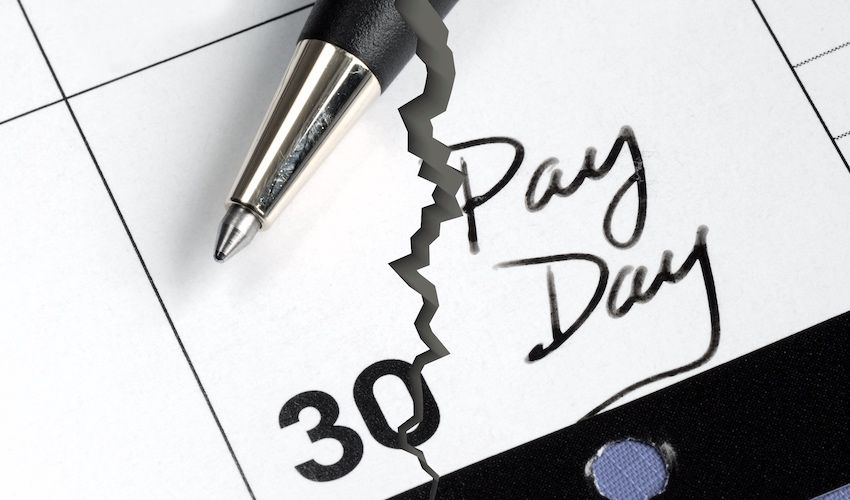


A Senator questioned why in her 12 years of public office there has always been a reason not to increase the minimum wage to a level needed for “living rather than just pure survival” shortly before a plan to raise it to £10 was narrowly defeated yesterday.
As she urged her colleagues to vote in favour of Deputy Geoff Southern’s proposal, Senator Tracey Vallois reminded States Members that many of the key workers in the covid crisis were on minimum wage, while Constable John Le Bailly said that politicians they should only vote against a rise if they would be comfortable to be paid that sum.
The motion was defeated 25 votes to 20.
Deputy Southern's proposal sought to bring increases to the minimum wage in October 2021 and then October 2022 without first consulting the Employment Forum – a non-political body that makes recommendations to government on employment and wage matters.
Deputy Southern, who is Reform Jersey’s lead on matters of Social Security, also asked that the Social Security Minister ensure at least two representatives of poverty-focused charitable organisations sit on the Employment Forum.
Presenting his proposition to the States Assembly yesterday afternoon, Deputy Southern said income inequality was “the thing to fight”, adding that “having a job and a reliable income is important for people’s wellbeing and contributes to the economy”.

Pictured: Deputy Geoff Southern said income inequality was “the thing to fight”.
He went on to say that current wages for full-time jobs were not enough to meet islanders’ living costs and said there was no better time to help islanders achieve a “decent standard of living” than in the recovery from covid.
Deputy Scott Wickenden, the Assistant Minister for Social Security, said he was “extremely disappointed” the debate was taking place, as the Government had made a commitment in its 2021 Plan to review the minimum wage process.
He urged members not to support the proposal and instead wait for the report on the consultation, which was started the day after Deputy Southern amended his original proposition.
Echoing Deputy Wickenden’s words, Senator Sam Mézec said his disappointment stemmed from a different place.
“I am disappointed that this proposition is even necessary,” he said, adding that the Government should have increased the minimum wage it of its own initiative as many islanders live in relative poverty despite working full-time.
Members were split over the proposition, with many suggesting it could lead businesses to collapse, while members of the Government urged States Members to wait for the end of the consultation.

Pictured: Constable Le Bailly told members they should support the proposition if they couldn't survive on the minimum wage.
St. Mary's Constable, John Le Bailly, backed the proposal, saying that the island should be setting an example “not leading poverty”, adding that employers should be paying a fair wage “without expecting to be supported by taxpayers."
“Would any of you work for the minimum wage? Could you survive on that wage? If the answer is no, then you should support the proposition,” he told fellow States Members.
Reflecting on the more than a decade of service in the States Assembly, Senator Tracey Vallois asked States Members when would be the right time “to reach the minimum wage that is needed to have an actual living rather than just pure survival”.
“Being in the States for over 12 years now, I think I’ve heard all the arguments against minimum wage increases a number of times repetitively stated,” she said.
“So, let’s create that dose of reality, is it ever going to happen for Jersey? Because there’s always a reason not to do so.
“There was the financial crisis, we couldn’t increase it then, then all the excuses that are made in between and now that we have had the pandemic… but yet other countries have managed to do so, during these times, and have been successful at doing it.”
She went on to emphasise that many workers on minimum wages are “frontline workers”, who “put themselves at risk during the pandemic”.

Pictured: Senator Vallois said that in her 12 years in the Assembly, there had always been a reason not to increase minimum wage.
“Nursing care and the nursing homes, the retail, the hospitality, the people that kept us going when times were really getting tough, many of those people are those that maybe on those minimum wage levels and yet that hasn’t been mentioned yet during this debate by anybody,” she said.
Senator Vallois said she might not have supported Deputy Southern’s proposition had the Council of Ministers been “willing to put a cap on rental increases or house price increases”, adding, “...But that’s never going to happen, is it?”
She continued: “When we talk about the support that we provided and the crisis that we’ve seen not just over the last year, but over the last 10, 12 years, whether it’s to do with the financial crisis, or the many other issues that we faced, Deputy Ward referred to this issue of leadership... It comes to the point where we have to put our markers in the sand and decide when it is we are actually going to do this, and stop relying on people who are not elected to tell us what we should and what we shouldn’t be doing.”
The majority of Deputy Southern’s proposition was defeated with 25 votes against and 20 pour.
The Assembly, however, agreed that the Employment Forum should consider whether the minimum wage could be set at the level of the Jersey Living Wage, and when that would be feasible.
The Living Wage, an hourly rate calculated to cover the basic essentials of living by Caritas Jersey - an organisation dedicated to helping the island's most vulnerable - is currently at £10.96 - £2.64 more than the current minimum wage of £8.32.
Comments
Comments on this story express the views of the commentator only, not Bailiwick Publishing. We are unable to guarantee the accuracy of any of those comments.